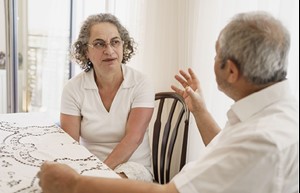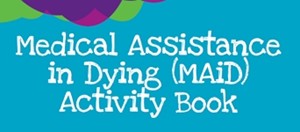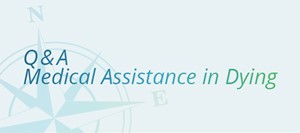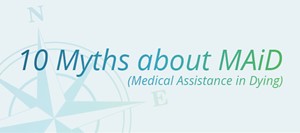What is MAiD?
"It was in keeping with how she conducted herself: She wanted to go out on her own terms."
Medically Assistance in Dying (MAiD) is a legal option in Canada for adults who meet specific criteria set out in law. If these conditions are met, a doctor or nurse practitioner can provide medications that then cause the death of the person. MAiD is available in Canada to anyone eligible for government funded services. There is no cost to the person or family.
Although it is legal in Canada to have a self-administered medically assisted death (where the person takes prescribed medication by mouth themselves), this is still rare in Canada. In many provinces and territories, the only type of assisted death that is readily available is where the MAiD provider gives medications through IV.
- MAiD practitioner – a medical doctor or nurse practitioner who is either a MAiD assessor or MAiD provider or both.
- MAiD assessor – a medical doctor or nurse practitioner who does assessments, sometimes called eligibility reviews, to determine if an individual meets the requirements set out in law to have MAiD.
- MAiD provider – a medical doctor or nurse practitioner who prescribes and/or administers the medications to an individual who meets the criteria to have MAiD. Not all provinces allow nurse practitioners to be MAiD providers.
- Family – includes immediate, biological, adopted, and chosen families and is meant to be inclusive of the important people in the person’s life.
- Intravenous (IV) – a small needle that is inserted into a vein, usually in the arm, wrist, or hand to give medications directly into the bloodstream.
MAiD has specific requirements that must all be met for a person to be eligible. A person must:
- Be eligible for health services provided by a province, territory, or the federal government.
- Be at least 18 years of age and capable of making their own healthcare decisions.
- Have a grievous and irremediable medical condition. *
- Make a voluntary request for MAiD, free of outside pressure or influence.
- Provide informed consent to receive a medically assisted death.
According to the law, a “grievous and irremediable” medical condition exists if a person has ALL of the following:
- A serious and incurable illness, disease, or disability.
- Is in an advanced state of decline in function that cannot be reversed.
- Has unbearable physical or psychological suffering from the illness, disease, disability, or decline, that cannot be relieved in a way the person finds acceptable.
The incurable illness, disease or disability does not need to be fatal or terminal, but there are different procedural safeguards that must be met depending if the person’s natural death is reasonably foreseeable, or not.
More Articles

The application process for MAiD

Why do people consider MAiD?

Telling family and friends

Talking to children and youth about MAiD

Starting a conversation about MAiD with the person who is ill

Seeking information and starting the process

Capacity and consent and why they are important

Having the assessments

Choosing when and where

Planning for the time left

Planning the day of MAiD

A medically assisted death

Grief after a medically assisted death

For healthcare providers







